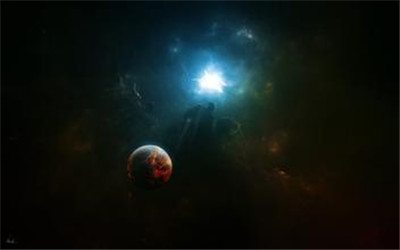The eventual result was the inflation theory, which holds that a fraction of a moment after the dawn of creation, the universe underwent a sudden dramatic expansion. It inflated—in effect ran away with itself, doubling in size every 10-34seconds. The whole episode may have lasted no more than 10-30seconds—that's one million million million million millionths of a second—but it changed the universe from something you could hold in your hand to something at least 10,000,000,000,000,000,000,000,000 times bigger. Inflation theory explains the ripples and eddies that make our universe possible. Without it, there would be no clumps of matter and thus no stars, just drifting gas and everlasting darkness.

According to Guth's theory, at one ten-millionth of a trillionth of a trillionth of a trillionth of a second, gravity emerged. After another ludicrously brief interval it was joined by electromagnetism and the strong and weak nuclear forces—the stuff of physics. These were joined an instant later by swarms of elementary particles—the stuff of stuff. From nothing at all, suddenly there were swarms of photons, protons, electrons, neutrons, and much else—between 1079and 1089of each, according to the standard Big Bang theory.












